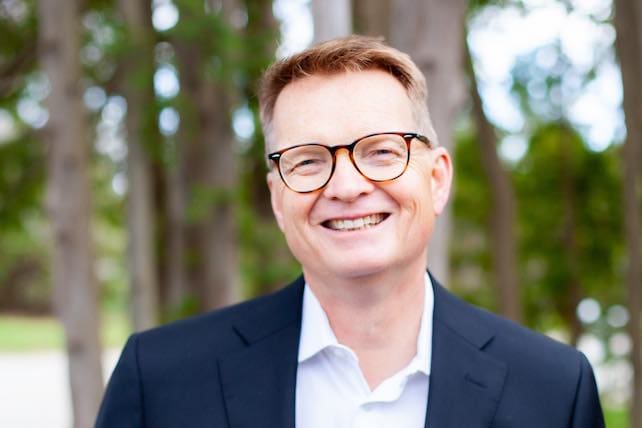And what about people treating AI as though it were divine? “[The] New York Times ran a piece a couple of weeks ago about chatbots that now will answer for God so you can have a conversation with God,” Nieuwhof said. “Those chatbots are available. Now, I’m not sure they’re biblically accurate. I’m not sure that they’re going to be helpful. But you know, what if this becomes a religion? What if it’s something we worship? What if we are no longer the dominant species?”
“I mean, there are all these existential questions, and the reality is we’re all talking about, ‘So what prompt do you use? And did you see that fun viral video?’” he said. “So those are the things that I’m kind of diving into and researching and trying to figure out, what do we do as church leaders? And, you know, I think we have some clues, but…this is difficult stuff.”
Carey Nieuwhof: The Church Must Prioritize ‘Human Connection’
Carey Nieuwhof encouraged pastors who feel overwhelmed by the task at hand not to simply ignore AI and hope it will go away. “If you’re really a pastor, your people are going to be struggling with this,” he said, “and you’re beginning to see the ripple effects of the struggle right now.”
Pastors have a unique opportunity in this cultural moment. “I think we need to discover purpose and mission,” said Nieuwhof. “I think a lot of people will realize, ‘Wow, the economics are not great. I’m having difficulty getting a job. What is this life really all about?’ It’s a golden opportunity for the pastor.”
His hope is that church leaders will be “willing to lean into the pain…not put your head in the sand.” Nieuwhof said, “If you’re willing to look at the issues that people are facing and particularly will be facing, and then think about how [we can] respond: What they need is love, what they need is care, what they need is connection, what they need is community.”
RELATED: ‘How Vulnerable Should You Be as a Pastor?’—Carey Nieuwhof Offers Helpful Framework
Carey Nieuwhof said the thesis of his book “is that as the world becomes more artificial, the church has to become more human, and that the church’s future direction is human connection.”
“We know, statistically, when people who are struggling with mental health get in rooms with other human beings, that they flourish in a better way,” he said. “We know that when we get people connected with God and connected with each other, that people do a lot better.”
There is good news for pastors. On the one hand, “we don’t have enough people to really shape AI meaningfully in the church,” Nieuwhof said. On the other hand, “pastors know what to do about this…nobody should be able to out-relationship the local church.”
“What I am writing about is we need to rethink how we do church to make it more relationship-first,” said Nieuwhof. “And that’s a relationship with God, which we’re pretty good at. We’re not as good with the relationship with each other.”
The greatest commandments in the Bible tell us to love God with our whole being and to love our neighbor as ourselves. Jesus sees these commandments as one, while we tend to see them as two separate commandments.
“But Jesus is like, you’re not really loving God unless you’re loving people,” Nieuwhof said, “and you’re not really loving people properly unless you love God. He sees it as integrated. And so I want to help pastors reintegrate a relationship-first approach to ministry.”

